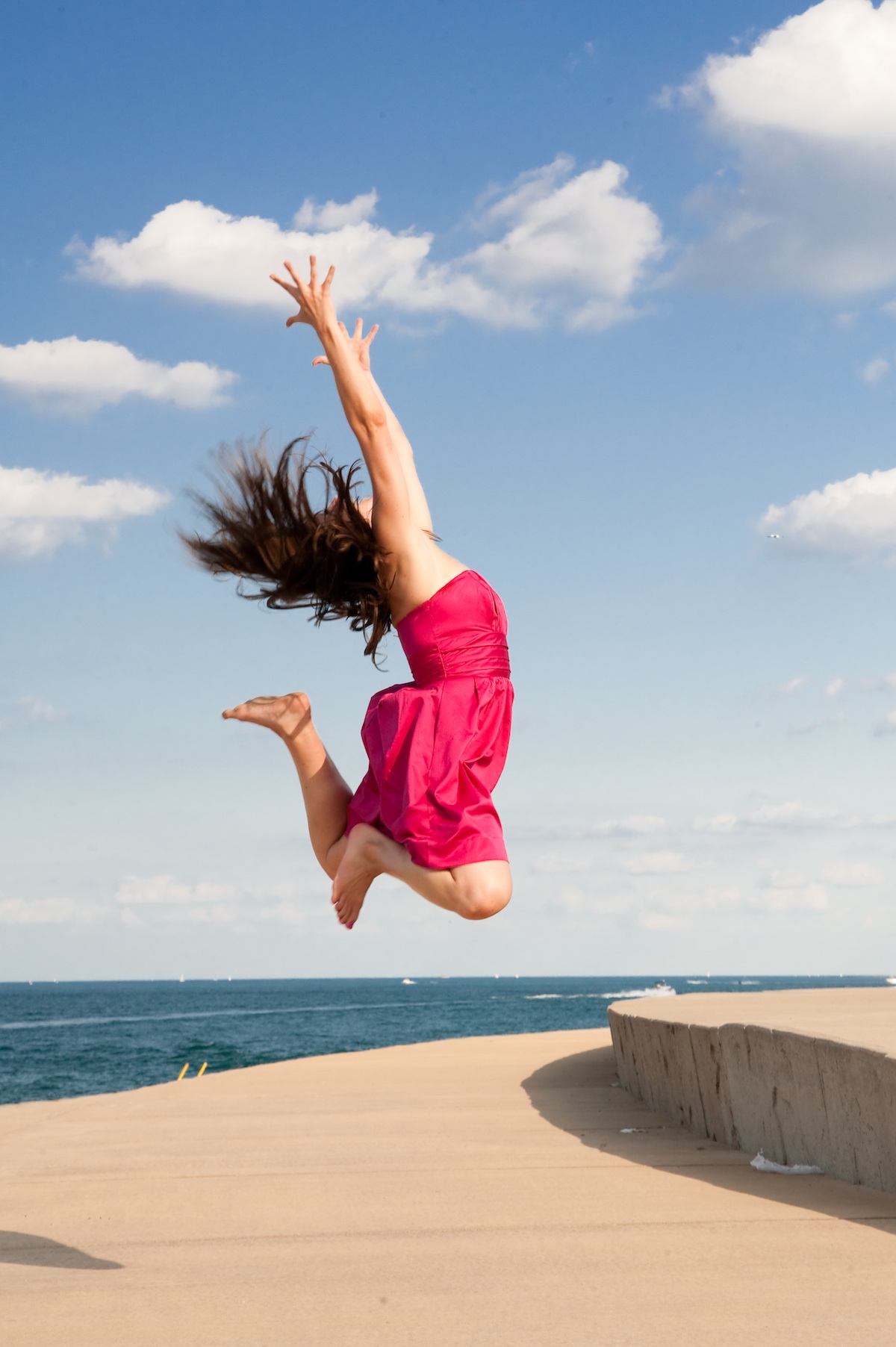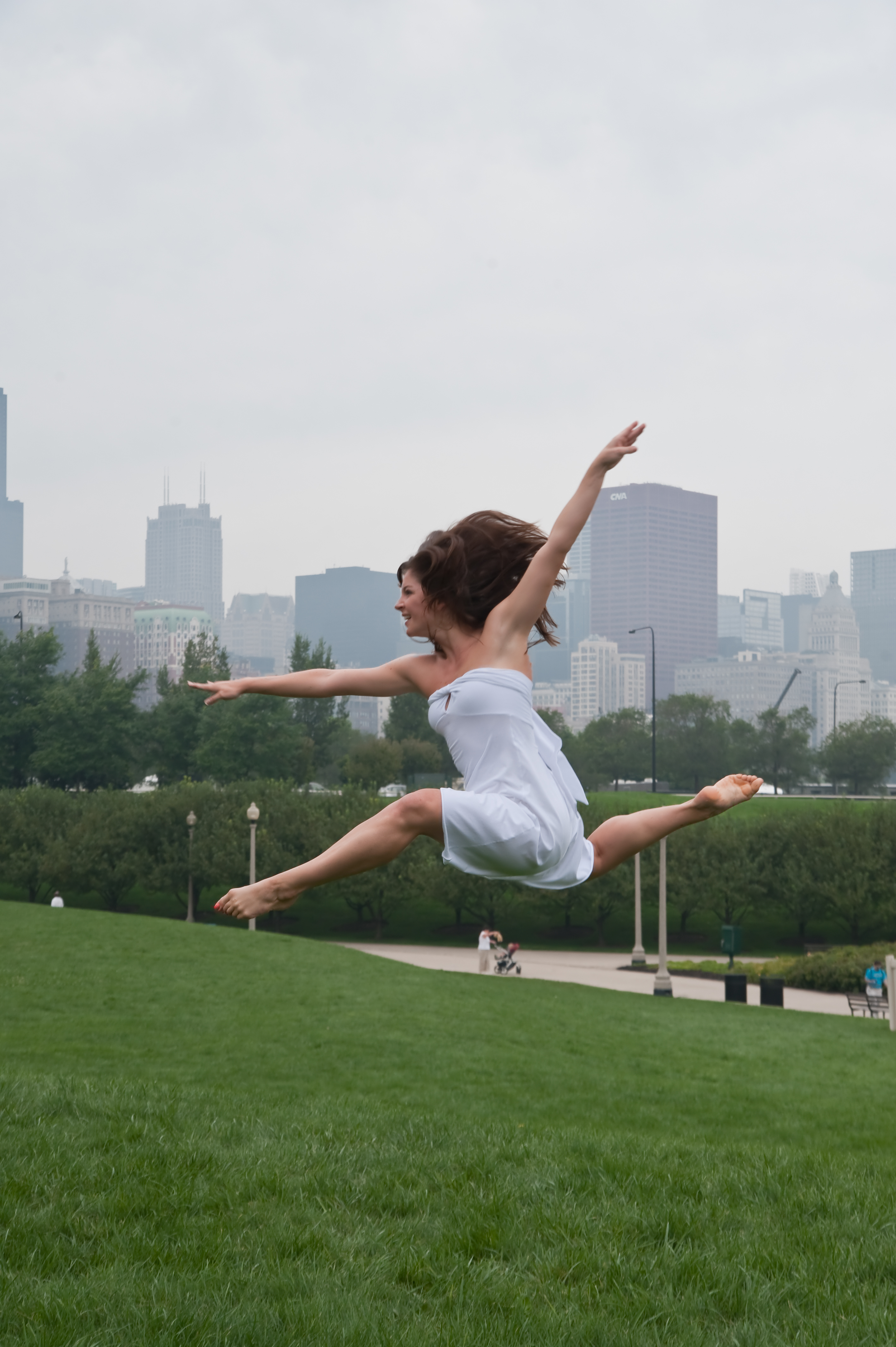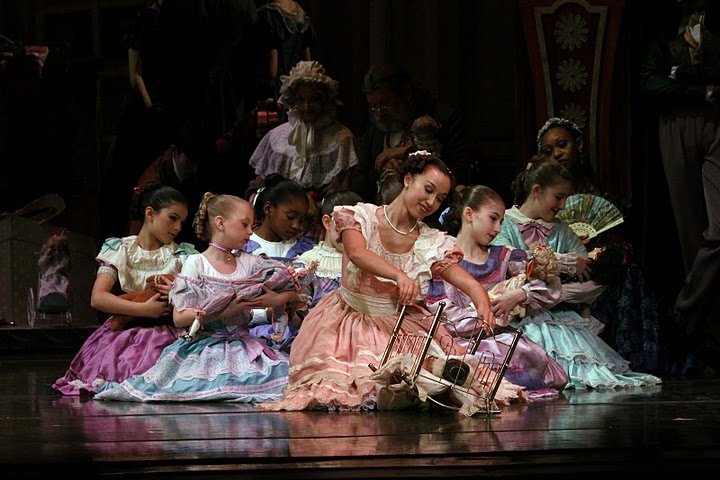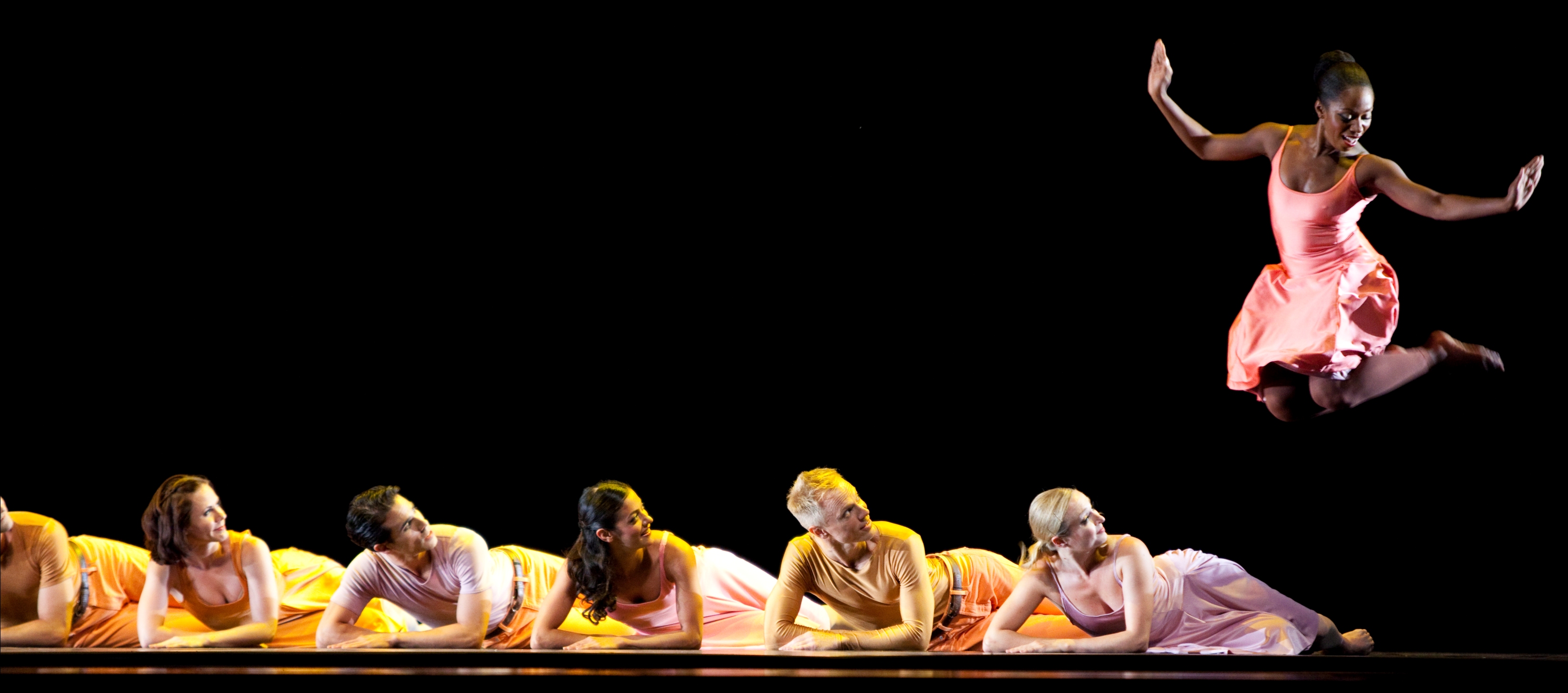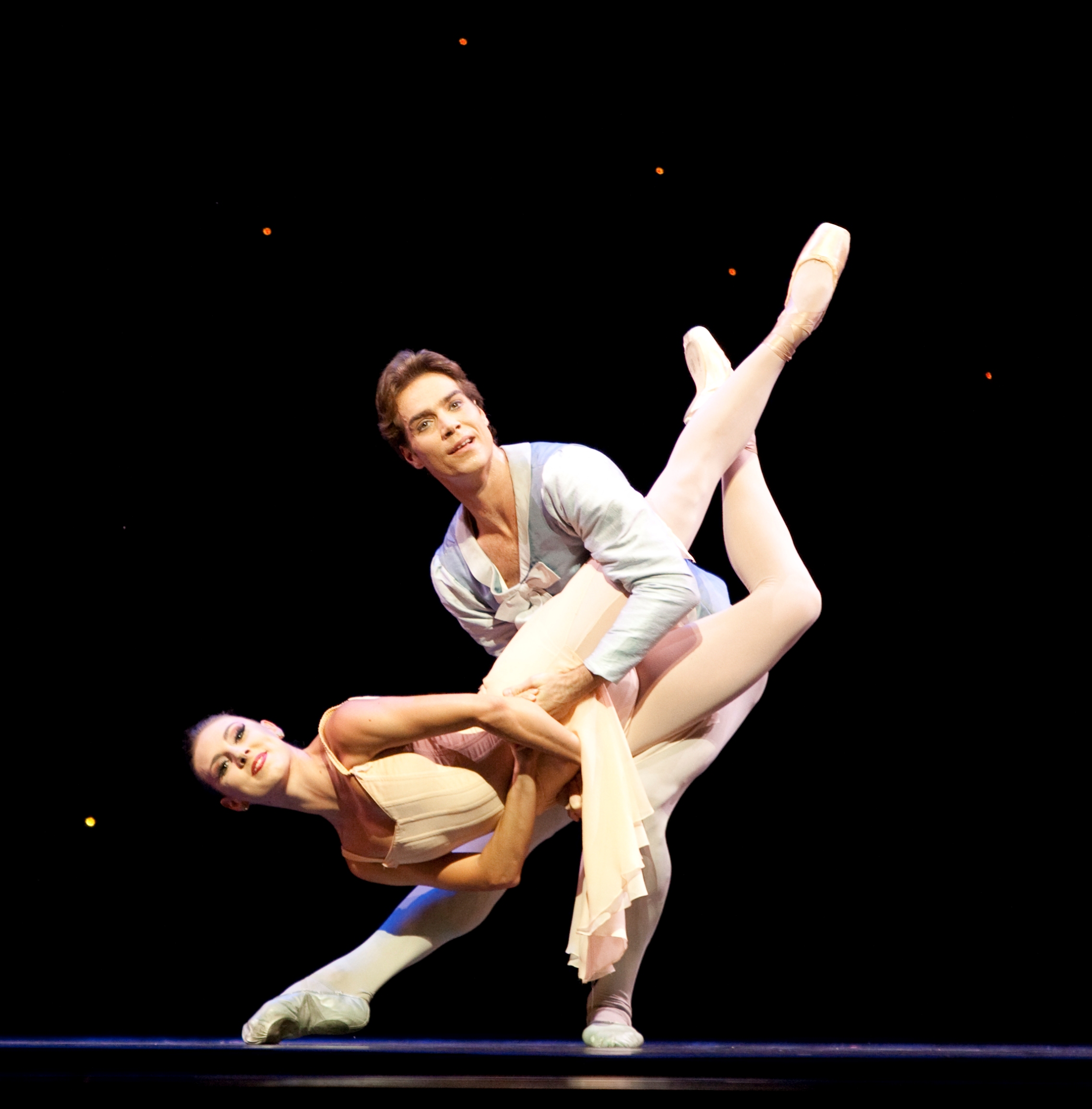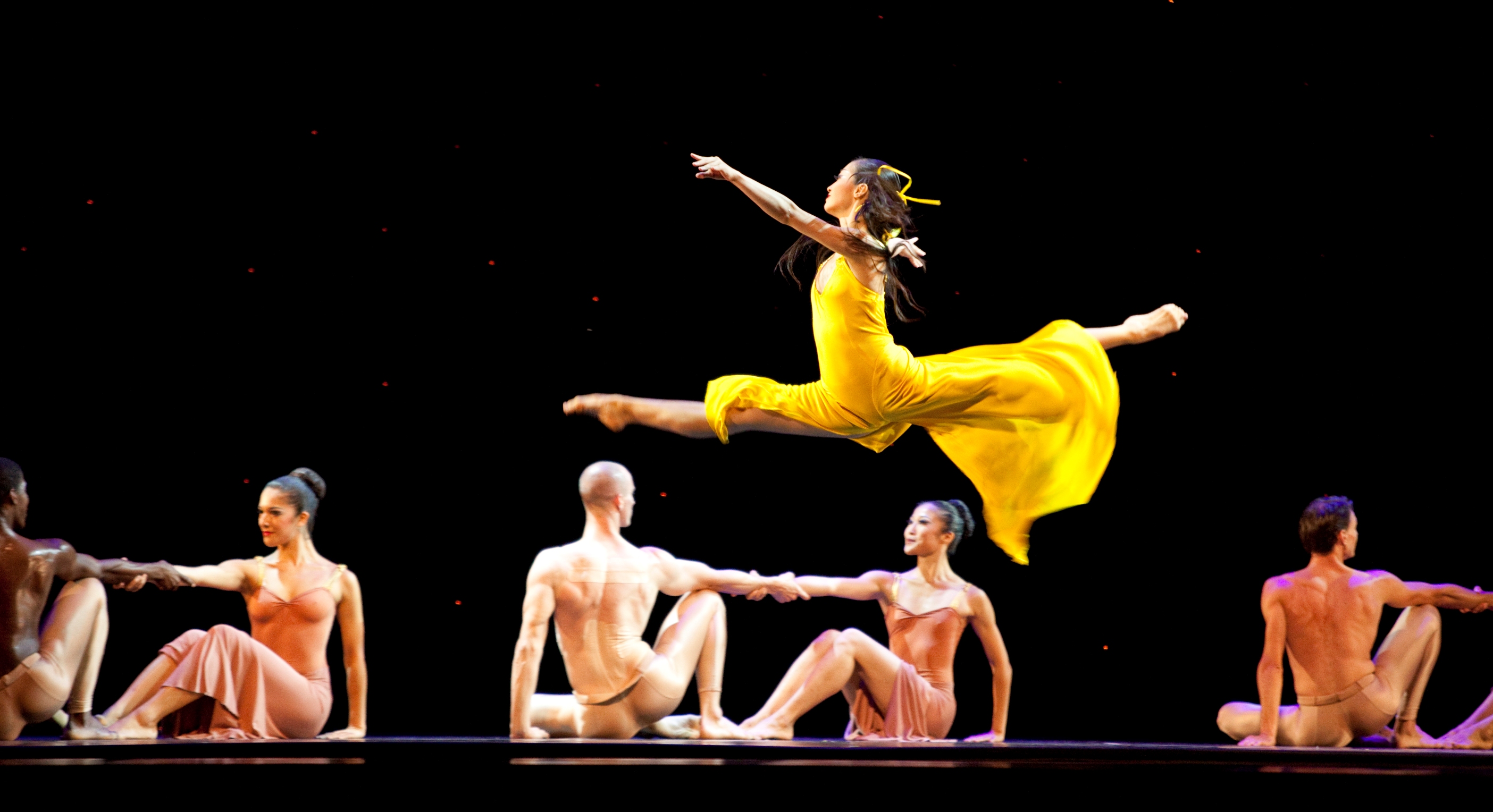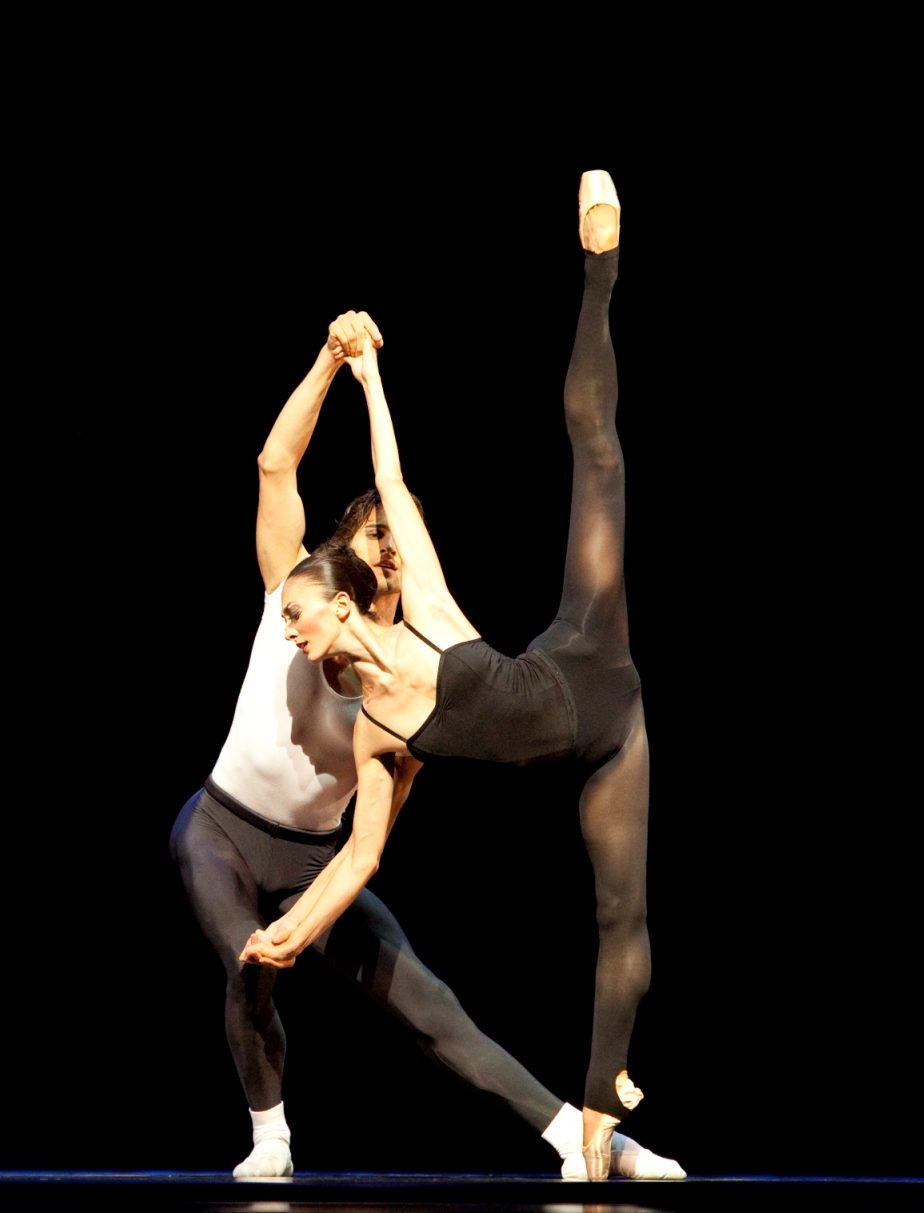Mary Williams will take her final bow this Saturday night after performing in the one-night-only show Constant Motion at the Harris Theater. This show is the first in a series of shared performances of Chicago dance companies funded in part by the New Stages for Dance Initiative, a program brought to Chicago through the local dance service organization Audience Architects in partnership with Dance USA and MetLife. Constant Motion pairs Inaside Chicago Dance* (ICD), where Williams is a dancer and Marketing Director, and Cerqua Rivera Dance Theatre (CRDT) for the evening-length program.
ICD starts the show with four numbers, plus a piece by their Youth Training Program dancers, then CRDT takes the stage with their signature live musicians and both groups participate in a collaborative finale choreographed by Artistic Directors Richard Smith (ICD) and Wilfredo Rivera (CRDT). Although stylistically different, the two companies come together (with the help of the initiative) to bring their talents to a larger venue than either one could secure alone: the Harris Theater. For Williams, it’s a pinnacle moment in her career.
Growing up in a small Michigan town, she started taking ballet class at age three and then got into Jazzersize (hilarious, but no joke). When a new dance school opened in town, she began taking classes and eventually danced competitively. College studies followed at Western Michigan University, with a double major in Dance and English. Williams had her heart set on moving to New York City, but landed a scholarship at Giordano Jazz Dance Chicago and moved here instead. During that first summer on scholarship, a fellow dancer asked her if she wanted to come with her to an audition. Of course, the energetic 23-year-old said yes and was asked to be an apprentice with Inaside. She’s been there ever since. Now, at 30, she’s decided it’s time to take a break from dancing and focus on other aspects of her career. I chatted with Williams last week around 10:30 pm, after she spent a long day (12 hours to be exact) rehearsing and teaching.
Tell me about the show and the collaboration.
Some of the great things about this collaboration, from a marketing aspect and as a behind-the-scenes person, we’ve been able to see a whole other group just like us…their system…how they do it, how they work together compared to how we work together…tricks of the trade. I know a lot of their dancers, so it’s been fun. It’s hard because we’re putting together two companies. I think we’ve had four rehearsals. It’s so fun when we get to do Wilfredo’s choreography. I think the dancers on both sides really liked it. It’s like having a guest artist come in.
CRDT dances to live music. How was it adjusting to dancing to live music for the final piece?
We have our first rehearsal with live music on Sunday! We’ve been working off of a recording. I think it will be exciting. It brings an element of surprise and almost improv into it.
Why did you decide to retire now?
I feel like dancing-wise I’m doing really great. I know the young talent that is coming up is exceptional. Right now, when I’m at my peak is a great time to stop dancing. Other than that, it’s very consuming. It consumes your life. Especially with the marketing…having these twelve hour days…they’re brutal and you start to feel it after a while. It’s been a hard decision to make, but I’m kind of excited to take the next step in my life and career.
What’s next?
I’m staying on as Marketing Director and I hope I can still come take class and keep up with my craft. I’m still teaching kids, but I want to be able to take class. I was recently named Dance Coordinator at Des Plaines Park District. I’ll be working in the dance office, getting to know the program, talking to parents, etc…kind of like my office job. I just won’t be a dancer on stage.
Since your last show is next week, what are you feeling?
I have so many different things going on. I’m excited about the show. It’s this huge, awesome event. It’s not going to hit me that I’m not going to be dancing with the company anymore until I sit in the audience and watch them perform. I feel like I should be focusing on the show more now, but you’ve gotta work, do the marketing…all this other stuff in life. Right now, I’m being pulled in a lot of different directions, which I think is distracting me from the reality that I’m not going to be a dancer any more.
The day after the show might not be so fun.
I’m probably going to cry a lot. I’m very emotional.
But, what a way to go out!
I can leave with a great sense of accomplishment. I set out to be a dancer and I did it! I followed my dreams. It’s so cheesy, but it’s true.
Are you looking forward to a little bit of a break?
Yes. I’ll get to eat. I’m kind of excited about that. I never starve myself, but you watch what you do. I’m looking forward to some free time and spending time with my husband. That will be nice.
Constant Motion: Inaside Chicago Dance & Cerqua Rivera Dance Theatre – Saturday, September 24th, featuring choreography by Harrison McEldowney and Tony Savino, Autumn Eckman, Eddy O’Campo, Richard Smith and Wilfredo Rivera.
Harris Theater, 205 E. Randolph, 312.334.2400, Tickets: $25-40,
*Disclosure: I’m a former board member for ICD and currently serve in an advisory capacity and with special projects.

